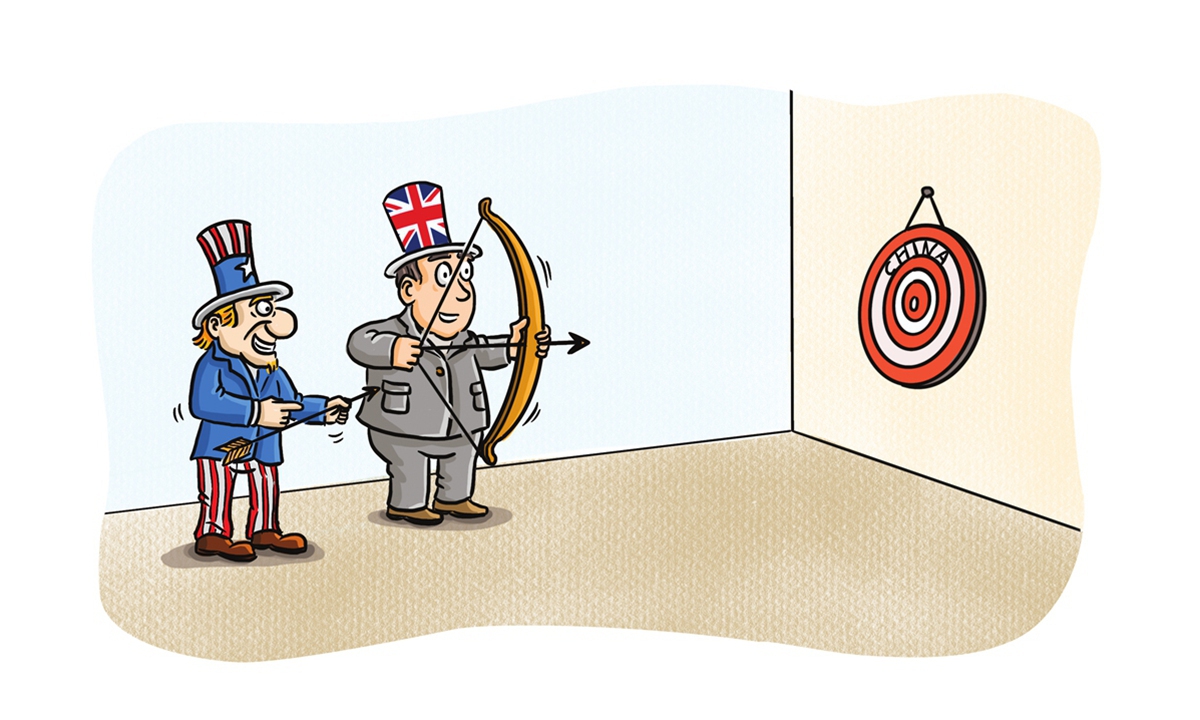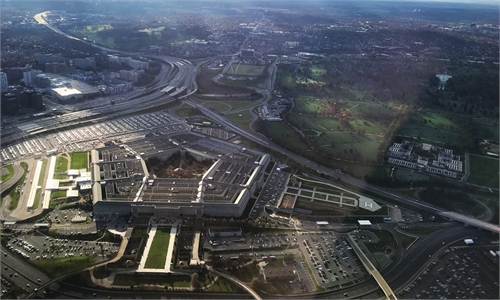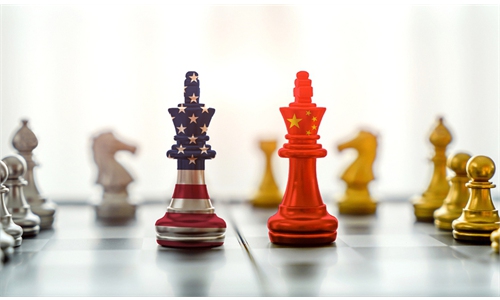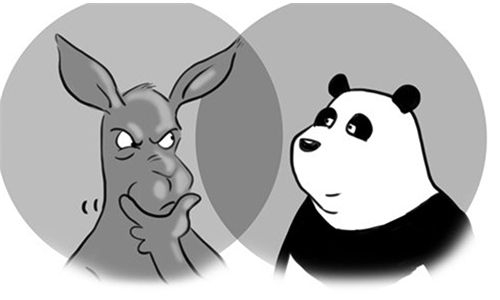Bellicose talk by Western politicians pushes world further along dark path toward clash

Illustration: Xia Qing/GT
The newly-appointed professional head of the British Army has called for the nation to massively increase the power of its military, doubling its lethality, and to be prepared for war within three years. General Sir Roland Walker, the chief of the general staff, did not explicitly predict who the future foe would be, though he dropped some pretty unsubtle hints: he said the West faces an "axis of upheaval" - and that the increasing threats are from Russia, China, Iran and North Korea. He made his feelings clear enough.
His intemperate rattling to reporters followed an address to the land warfare conference at London's Royal United Services Institute, a defence and security think tank, following a pattern already established by his predecessor, and by other senior armed forces personnel in the UK and elsewhere in the West, particularly the US: predicting war generally, and specifically with China. The Top Brass from the Baltic to the Mediterranean, and from Eastern Europe to the US, has been talking up the possibility of war - some even predicting dates - for some years. Earlier, George Robertson, former secretary general of NATO and the recently-appointed head of a strategic defence review for the UK, identified the same four countries as a threat, using the slur: "deadly quartet."
Earlier this year, Admiral John C Aquilino, former head of the US Indo-Pacific Command, criticized China for its spending on defence.
According to research published by the Stockholm International Peace Research Institute, last year the US spent $916 billion on its military, which was 2.3 percent more than in 2022. China, by comparison, spent $296 billion on its forces last year, less than a third of the American bill. Calculated as a percentage of GDP, the imbalance is even plainer: last year's spending equaled 3.4 percent of US GDP, while China's spending amounted to only 1.7 percent of its GDP.
Globally, more than $2.4 trillion was spent on the militaries of the world and America's funding accounts for around a staggering 40 percent of that, making it by far the planet's biggest investor in arms.
The previous British government's defence secretary Grant Shapps talked of the West moving from a post-war to a pre-war world and stupidly predicted conflict with China, Russia, Iran and North Korea all within five years. Walker's predecessor, General Sir Patrick Sanders, said earlier this year that people should form a "citizen army" to fight in this fantasy war. He spoke of a "whole-of-nation undertaking," echoing the doom-laden phrase "total war."
Surprisingly, it is the Western ally which is geographically closest to China, which has the most measured view. Australia's new chief of defence Admiral David Johnston pointedly dismissed other military leaders' bellicose talk. When asked about the possibility of imminent conflict with Beijing, he replied: "We don't think that scenario you painted is in our imminent future" though this has not prevented Canberra from being drawn into the unwise, and possibly unworkable, AUKUS pact.
The West's dominant pugnacious rhetoric is often followed by increased military spending, or promises of it from politicians across Europe, often alongside talk of conscription or citizens being trained for war. Britain's new prime minister Sir Keir Starmer recently agreed to send 3 billion pounds ($3.83 billion) a year worth of further aid to Ukraine "for as long as it takes." Just a few days into his new job, he attended a NATO summit and instead of seeking a solution to the war, he used his platform to pledge more missiles for Kiev, and promised to increase the UK's military spending to 2.5 percent of its GDP. That pledge is part of a pattern among the NATO nations. General Walker's boss, the chief of defence staff Admiral Sir Tony Radakin, told the same RUSI conference that ten years ago just three NATO member states spent 2 percent of their GDP on defence. Today that figure is 23 member states. The West's relentless escalation of weapons to Ukraine - and permissions of where to use them - has continued along with NATO's provocative expansion marching the world ever further along the dark path toward a wider war.
It is telling in Walker's outburst that he identified a trigger point of conflict with China as Taiwan island. This is despite Britain having no formal military aid agreement with the island. Perhaps the general sees the Article 5 mutuality commitments of the NATO treaty, under which any member of the alliance can come to the other's aid should it be attacked, as an opportunity to wage war on China in these circumstances. He should be careful what he wishes for. The last time - the only time - that clause was acted on led to a disastrous 20-year war in Afghanistan, which ended in humiliating defeat for the West.
The author is an independent researcher and analyst with an interest in China. opinion@globaltimes.com.cn



